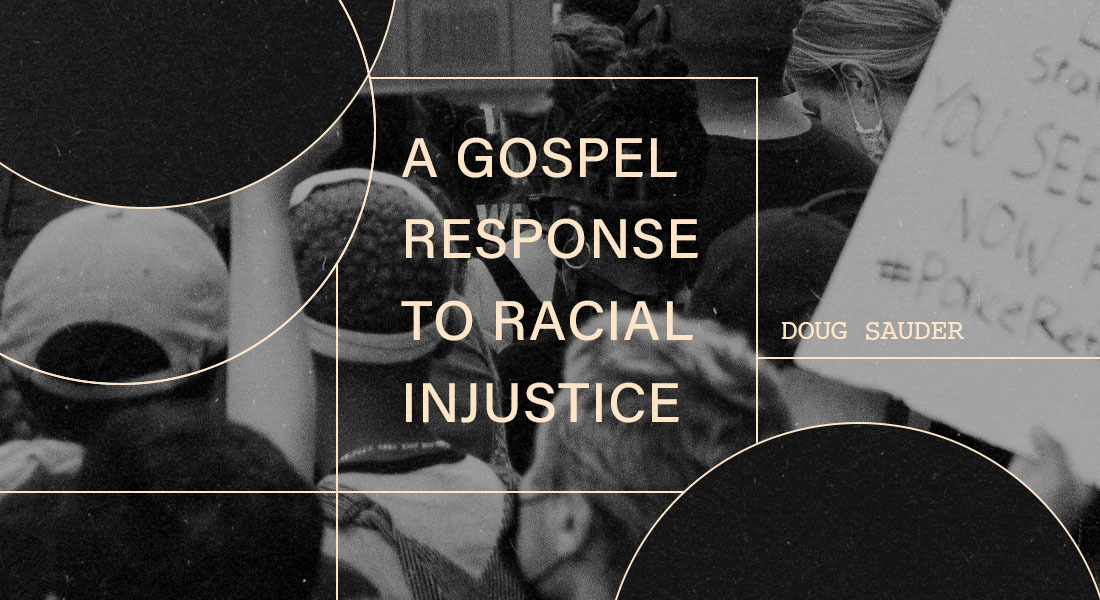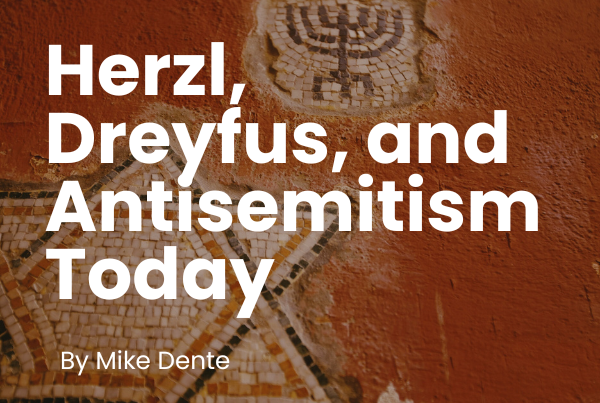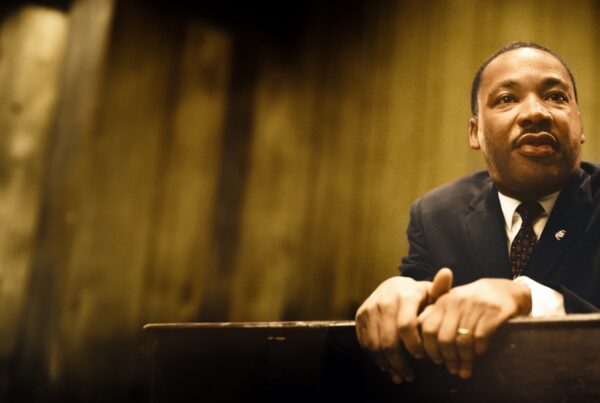
I can’t breathe.
These words are haunting. After more than 100,000 Americans lost their breath due to Covid-19, the words of one man still echo in the American psyche: I can’t breathe. We watched for more than eight excruciating minutes as the breath of life was snuffed from George Floyd’s body in a prolonged act of police brutality.
Only a few weeks earlier, we watched a video of the attack and murder of Ahmaud Arbery as he jogged down a Georgia street. The racial slur uttered by his attackers over his lifeless body reminds us there is something deeply broken in the American soul.
And then came the protests, riots, and looting. Police attacking protestors. Protestors attacking police and property. These images flooded the televisions in our living rooms and social media feeds creating a disorienting cocktail of anger, sadness, confusion, and frustration. And all of this came on the heels of three months of isolation, fear, loss, and economic uncertainty brought on by Covid-19.
Most people I talk to are just tired—2020 was not supposed to turn out this way. But in spite of the numbing exhaustion, the gospel compels us to seek a way forward because, as God’s people, we’re called to the ministry of reconciliation.
Reconciliation is defined as the restoring of a broken relationship.
It sounds so simple, right? But we all know reconciliation is hard and uncomfortable work. If you’ve been deeply hurt by someone or something, you know the struggle to forgive and restore the love and trust that once made that relationship strong. The work of reconciliation was uncomfortable for Jesus, too. Our own story reminds us that sin had broken our relationship with God and created a separation that no one could bridge. Only Jesus could restore what had been stolen. Coming from heaven to earth, trading glory for humility, trading worship for ridicule—it was uncomfortable, but Jesus chose this work because of His love for us.
It’s Our Turn
And now, it’s our turn. We’re called His ambassadors. As citizens of another kingdom, we’ve been entrusted with the same mission. Above all else at this moment, we must love like Jesus.
As in Jesus’ day, some will argue the work of the Church is to pray, read the Scriptures, and preach the gospel, but Jesus Himself reminds us that it’s possible to create a faux religious experience void of justice and mercy. He minced no words in calling out this form of systemic injustice and religious hypocrisy:
“Woe to you, teachers of the law and Pharisees, you hypocrites! You give a tenth of your spices—mint, dill, and cumin. But you have neglected the more important matters of the law—justice, mercy, and faithfulness. You should have practiced the latter, without neglecting the former” (Matthew 23:23, NIV).
The gospel is not only about proclaiming the good news of the kingdom of God, but about embodying the values of the kingdom as we preach. Anything less is a truncated gospel.
Seizing the Moment and Representing Jesus
And so at this moment, how do we gain the right perspective about what’s happening in our world and our response as God’s people? For me, I’ve found the picture of boats in a storm helpful. Right now, we’re all going through a storm, but we’re not all in the same boat. We see this in our Covid-19 experience. This pandemic has affected us all, but it has affected us all so vastly different. Some of us have been in a proverbial cruise ship and gotten mildly seasick, while others have ridden out this storm in a rowboat and have experienced great loss. Same storm, different boat.
One of my good friends contracted Covid-19 and battled for his very life. Another friend lost his brother to Covid-19. Others lost jobs, businesses, and quickly learned to juggle homeschooling kids all while working full-time. At the same time, other friends have enjoyed the pause. No more rush-hour traffic. Dinners with family. Walks around the block. Game nights. Sure, there was economic uncertainty and the loss of retirement assets, but generally, Covid-19 didn’t create an upheaval of life for most of us. Same storm, different boat.
This explains the great divide in the responses to this global pandemic. Some of my friends wonder what the big deal is, while others think getting back to normal too soon is foolish and irresponsible. Like Covid-19, it’s hard to believe racism still exists, unless you’re experiencing it.
The enormity of racism in our country’s past and present is a lot like that storm. We all feel the effects of it but in vastly different ways. For my white brothers and sisters, this moment has created a seasickness—I can’t watch this and feel good about where we are as a country. But for my black and brown brothers and sisters, moments of racially charged killings and police brutality in the present brings centuries of pain, loss, and grief back into the present. Same storm, different boat.
And to be honest, this disparity is really uncomfortable. Doesn’t it feel easier to say nothing and hope this moment will pass. Can’t we just get back to normal? But as a Church, we’re compelled to represent Jesus at this moment.
So, what can we do? The vastness of century-old issues can feel paralyzing. If this couldn’t be solved for the last three centuries, what hope do we have now? The truth is, no one person can solve this, but everyone can do something. There are some simple things we can do and should do because the Gospel of Jesus Christ compels us. And now is our time, not to shrink back, but to love like Jesus. I’ve found the following biblical framework a helpful guide to our response: Listen. Lament. Repent. Act.
Listen
Pursuing justice and mercy starts with listening. When human beings go through tragedy, the first and most powerful thing we can do is show up—and listen.
The only thing Job’s friends did well as they watched him go through unimaginable losses was to sit with him until he was ready to talk. The gift of presence is powerful.
“Then they sat on the ground with him for seven days and seven nights. No one said a word to him, because they saw how great his suffering was” (Job 2:13, NIV). This is also why James, the brother of Jesus wrote, “Be quick to listen, slow to speak and slow to become angry, because human anger does not produce the righteousness that God desires” (James 1:19-20, NIV). Everyone can listen.
Recently, I joined a group of white, black, and Hispanic pastors and Christian leaders on a video call where we simply listened to each other. Some were leaders I’d known and worked with for more than a decade. As I listened to my black and brown brothers and sisters share, I had a growing sense I’d missed the mark as a friend and partner in our gospel work.
“I was profiled last week walking in my neighborhood. I’m tired and afraid.”
“I feel overlooked.”
“I’m angry.”
“Pray for me. My heart is getting hard.”
“I’ve never jogged with my ID on me, but now I feel like I have to.”
“I call my son 3-4 times a day just to make sure he’s ok.”
The words and emotions poured out of shared experience and pain—a pain that was foreign to me. After dinner and a brutally honest discussion about her journey with racism, one of my close friends said, “I want to apologize if I said too much.” Too much? I thought our friendship was a safe and trusted place. I assumed all my friends felt safe to speak their minds—but I had made too many assumptions.
Maybe I made these assumptions because I don’t consider myself a stranger to the black experience. I spent a summer working in a housing project in Atlanta, where the expressed mission was to immerse college students in the inner-city experience. I worked for years in a predominately black school as a public school teacher. My wife and I are raising two adopted sons of color and live in a predominantly black neighborhood. We regularly have friends of color in our home. Though I’d heard the stories, gotten angry, and advocated where I saw injustice, I’d clearly failed to listen and feel the pain of my friends. Everyone can listen. And if we listen closely, we can learn to lament.
Lament
“Blessed are those who mourn, for they will be comforted” (Matthew 5:4, NIV).
Jesus shared these words in what Christians affectionately refer to as the Beatitudes— words meant to shape the attitudes of those who follow His kingdom. In 1 Corinthians 12:25-26 (NIV), the apostle Paul instructs, “If one part suffers, every part suffers with it.” As Christians, we’re called to be one family and one body. If we don’t feel the pain of our brothers and sisters when they suffer, there may be something wrong with us. But as we weep with those who weep, together we find the comfort and healing Jesus promised to His family.
Where Job’s friends went wrong was in their attempt to diagnose the reason Job was suffering. As Job is cross-examined in the midst of his suffering, he speaks a powerful truth, “Those who are at ease have contempt for misfortune” (Job 12:5, NIV).
Let’s be honest, it makes us feel better when we can justify why bad things happen to people—it helps us enjoy what we have without the guilt. If we could just find out what George or Ahmaud did to deserve this, then we can confirm our own biases, go back to our comfortable theological boxes, and feel a sense of relief. The problem is God will not fit in our box. Our echo chamber is not reality. Job’s friends spent the better part of 30 chapters pontificating from their limited viewpoint, and in the end, heard a direct indictment from God Himself. Their love got lost as they searched for the cause—and if we’re not careful that can happen to us. When we love, we listen, and we lament. And this requires very few words.
As I listened to the call last week, I began to feel pain. One of the pastors described the great vacillation between despair and hope at this moment—it was the same feeling he had experienced when his brother died. His wife could see the pain on his face, and he said it’s that sorrow that is a shared experience among most in the African American community.
As he described the events of the week that brought all the pain of the past back into the present, my thoughts wandered to a long-suppressed memory of an interaction with my youngest son when he was in kindergarten. I remember him coming home from his Christian school and bursting into tears sobbing as he said, “A boy at school called me a n-gger.” I’m not going to lie—my first reaction was just straight-up anger. But my son was more sad than angry. As I held him and his tears fell on my arm, my tears joined his. What kind of world was he growing up in, and how would I have to prepare his heart for the many times in his life he would have to experience that feeling?
This was the first time I felt the pain of racism in my body, in an emotion that was more than anger. It was sadness. It was momentary, but I still remember it. As Christ-followers, when we watch the video of George Floyd’s life ebbing away, we should feel pain. If we don’t, we should ask God to soften our hearts.
A good friend of mine took his son to a rally last week and they kneeled on the ground for almost nine minutes as they honored the life of a man they never met. As he kneeled beside his son, my friend began to weep. George Floyd was a son—and he felt that pain in his own body. When we as Christians feel the pain of others—we’re embodying the work of reconciliation that Jesus felt for us.
“Remember also those being mistreated, as if you felt their pain in your own bodies” (Hebrews 13:3, NLT).
Everyone can lament. And if we lament well, then we can repent well.
Repent
I’ve heard many white people say to me in the last two weeks, “What are we supposed to do?” Some are well-meaning, others want to see this moment pass. But the Scriptures are clear—our next action after we listen and lament is to repent. We have to see where we’ve been thinking or acting wrongly. We have to acknowledge that we don’t have all the information and that others can teach us.
Very few people I’ve met would say they have a racial bias. By the same token, very few people would admit they are hypocrites. Yet both of these tendencies thrive in the recesses of the human mind and heart. If we’re honest, all of us struggle with certain people of different races, genders, or cultures. They seem so different from us. We also struggle to live out what we say we believe, which is the definition of hypocrisy. So, the bad news is that all of us suffer from subtle forms of racism and hypocrisy. Fortunately for all of us, there is a way forward.
Repentance is our way forward, and it’s not a one-time event. Repentance is described in the Bible as a sorrow that leads to a change of thinking and behavior—an acknowledgment that comes from a combination of confession and conviction that something needs to change. In repentance, we sometimes have to use difficult words: Sin. Racism. Systemic injustice. White privilege.
Often, I hear white Christians say, “Slavery and systemic racism are clearly wrong, but how can we repent from something we weren’t a part of?” This is a really important question. And we actually see clear examples of this in the Bible.
Daniel and Nehemiah were both leaders who prayed prayers of repentance for a nation’s sins in which they did not directly participate. There is something powerful about leaders taking responsibility for sins, even if they didn’t actively commit them. After all, isn’t that what Jesus did for us in His work of reconciliation?
Start by simply acknowledging that “liberty and justice for all” are not enjoyed equally by everyone in our country. Acknowledge the fact that the privilege you may have enjoyed your entire life was not shared by everyone. After that acknowledgment and confession comes repentance—and repentance asks questions like: “How can I extend the privilege I’ve enjoyed to others?” and “How can I use my influence to bring equity where it does not exist?” Isn’t this, after all, what Jesus taught us to do when He said, “Do to others what you would have them do for you” (Matthew 7:12, NIV)?
True repentance leads to a sorrow that leads to an action that leaves no regret (2 Corinthians 7:10-11). This gives us the foundation to walk with humility and wisdom that can see beyond our experiences to the viewpoint of God Himself. God wants us to have His mind, so we can do the hard work of justice and mercy in the world.
The prophet Micah reminds us that this is what God requires: “He has shown you, O mortal, what is good. And what does the Lord require of you? To act justly and to love mercy and to walk humbly with your God” (Micah 6:8, NIV).
After walking through the process of listening, lamenting, and repenting, there inevitably will be a time to act.
Act
Doing justice is about making right the things that are wrong. The gospel puts demands on our soul in regard to justice, and we can’t be more committed to order than justice. Justice is a part of the gospel ethic, not reducing the gospel to what happens after we die, but joining God in the renewal of all things. Where inequities still exist, God’s people can be advocates to bring kingdom renewal.
The first action everyone can take is to build a diverse community. It’s been said that in life, we should begin with the end in mind. It only makes sense to work to build now what we will ultimately experience. As Christians, one day soon we will stand before Jesus in the greatest family reunion of all as we worship “from every nation, tribe, people and language” (Revelation 7:9, NIV). Justice looks like working towards what our future looks like—on earth as it is in heaven. This beautiful expression of the Church doesn’t have to wait until heaven. In fact, it was Jesus’ passionate prayer in John 17 that it would happen on earth. You can answer that prayer today.
If you have a trusted friend of color, invite them over for dinner. Ask them to share their story—unfiltered. As you listen, you‘ll learn how racism affects real people. If you have no black or brown friends, pray that God would direct you to a person who can guide you on your journey. Sadly, we know the gospel can be distorted by racism; we see these effects so tragically played out through history. But I want to remind you of a greater hope—racism is vulnerable to the gospel.
And the Holy Spirit is still working to break through these barriers.
The move of God’s Spirit at Pentecost displayed the power to bring sons of Babel back together as their new tongues spoke of the God who saves and renews. That same Spirit we see in the early church saves a son of Ham (Ethiopian eunuch), a son of Shem (Saul of Tarsus), and a son of Japheth (Cornelius the centurion). God brings together this natural band of enemies and makes them into a family—unified through something greater than what divided them, or should I say someone.
The second thing everyone can do is learn to be an advocate. An advocate is simply someone who speaks for a person who has no power to speak for themselves. This is what Jesus does for us before the throne of God (1 John 2:1).
History is full of Christian advocates like William Wilberforce, Frederick Douglas, and Harriet Tubman who all skillfully used their voices and influence to build bridges between an oppressed people group and a majority culture who possessed the power to bring justice. And they approached this journey with both urgency and patience. The urgency was driven by the reality that every day real people were being crushed by injustice. The patience was an acknowledgment that the strongholds of injustice wouldn’t fall in a day and needed a sustained effort with incremental victories over time. As an advocate, both urgency and patience are necessary.
To do what justice requires, a cause-of-the-week trend on Twitter and Instagram will not suffice. Justice requires sustained attention. After the protests and social media wars wane, the need to build bridges will continue for years to come. For my white brothers and sisters, justice looks like acknowledging your privilege and working to extend it to others.
You can’t tackle racism in the world all by yourself, but you can advocate for someone you know. The battle for justice often happens with one person, one conversation at a time. Maybe you’ve heard it said, “Do for one what you wish you could do for everyone.” If we all found one person who needed a bridge to be built between their need and those who had the power to meet that need, we would be the change the world needs.
My wife and I put that challenge to the test a few years back with a former foster child. It was amazing to see how differently we acted toward her when we began to do for her what we would normally do for a member of our own family.
And finally, the most important thing everyone can do is to do everything in love. There are many mysteries in the Bible, but there’s no mystery about our call to love others. Jesus calls it the greatest commandment: to love God and love your neighbor (Luke 10:27).
He told a story about a Good Samaritan, where He illustrated how love breaks through centuries of entrenched racial barriers. Jesus said everyone would know we are His disciples by the love we demonstrate to one another (John 13:35). We can’t control how non-Christians engage in rhetoric or division, but as followers of Jesus, we can make sure the motives behind our words and actions are done in love.
Pause for a moment and think about your recent social media posts and conversations you’ve engaged in both online and off. Were they spoken in love? Even if you think your words are right, if the motive behind them is not love, then they’re what the apostle Paul’s calls “a resounding gong or a clanging cymbal” (1 Corinthians 13:1, NIV).
Through the lens of love, we’ll see with new eyes—kingdom eyes—and we’ll not be so easily offended. We’ll not be so quick to cut people off when we don’t agree. Love is patient. Love is kind. Love is not easily angered. The love of God exemplified in and through His people trusts, hopes, and endures all things.
The love of Jesus never fails. It’s our turn to be those people.
“Do everything in love” (1 Corinthians 16:14, NIV).









